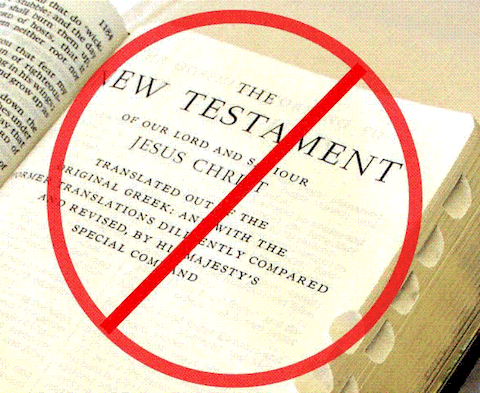
1001 Errors in the Christian Bible
Home
Dedication
Matthew
Mark
Luke
John
Acts
Contact Us
Luke -- Errors 301-307
#301
Luke 2: (KJV)
21 “And when eight days were accomplished for the circumcising
of the child, his name was called JESUS, which was so named of the angel
before he was conceived in the womb.”
It’s doubtful that at this time children were named at circumcision.
It appears to be a later custom and is probably an anachronistic description.
What’s interesting here is how “Luke” is moving away from
“Matthew’s” theology. “Matthew” claimed to be
a Jewish work with a primary objective of showing prophecy fulfillment
from the Tanakh. Jesus’ birth in Matthew is described as a significant
fulfillment of Tanakh prophecy. “Luke” has a stronger Pagan
influence than Matthew and stands by itself as a story without so much
reliance on the Tanakh as Matthew has. The significance of Jesus’
birth in Luke is that Shepherds had a vision of it first and then the
vision was fulfilled by visiting the real Jesus. No need to refer to the
Tanakh. This is why Christians with no Jewish background used the Gospel
of Luke as their Bible such as the Marcionites.
#302
Luke 2: (KJV)
22 “And when the days of her purification according to the law
of Moses were accomplished,”
The manuscript and Father evidence indicate that the “her” above
should be “their” and most modern translations use “their”.
The problem with “their” is that only the mother required purification
time after birth. KJV’s mistranslation is trying to purify the problem.
You can put the Goy in the Juda country but you can’t take the country
out of the Goy.
#303
Luke 2: (KJV)
22 “And when the days of her purification according to the law
of Moses were accomplished, they brought him to Jerusalem, to present
him to the Lord;”
“Luke” is confusing two separate laws here. After the birth
purification period the mother was required to go to the Temple for a
sacrifice, not the child.
#304
Luke 2: (KJV)
22 “And when the days of her purification according to the law
of Moses were accomplished, they brought him to Jerusalem, to present
him to the Lord;
23 (As it is written in the law of the LORD, Every male that openeth the
womb shall be called holy to the Lord;)
24 And to offer a sacrifice according to that which is said in the law
of the Lord, A pair of turtledoves, or two young pigeons.”
“Her purification” above is a mistranslation by KJV and should
be “their purification”. The author of Luke is mixing up two
separate laws here and getting most of the details wrong. After giving
birth the mother was required to undergo a purification period and then
make a sacrifice in Jerusalem. The first born male was required to be
redeemed from the service of God by having the parents pay coins to the
Priesthood. The related errors of “Luke” are as follows:
1) Luke wrote “their purification” but only the mother required
purification.
2) Only the mother needed to go to Jerusalem, not the son.
3) The sacrifice described was supposed to be for the mother, not the
son.
As Luke’s narrative reads, Jesus as first born according to the Law
is required to be in the service of God. Making a sacrifice like Jesus’
parents made related to this required service was intended to relieve
the first born from the service of God. Keep in mind that this is from
an author who started out saying:
Luke 1: (KJV)
3 “It seemed good to me also, having had perfect understanding
of all things from the very first, to write unto thee in order, most excellent
Theophilus,
4 That thou mightest know the certainty of those things, wherein thou
hast been instructed.”
Is this a clue from “Luke” that Jesus was not really who the
Christians thought he was or just what’s expected when a non-Jewish,
non-Israeli, non-early first century anonymous writer writes about Jewish,
Israeli, first century?
#305
Luke 2: (KJV)
25 “And, behold, there was a man in Jerusalem, whose name was
Simeon; and the same man was just and devout, waiting for the consolation
of Israel: and the Holy Ghost was upon him.”
“The consolation of Israel” always refers to waiting for the
restoration of the Temple in Jewish writings and is likely an anachronistic
reference by the author but let’s console him with the benefit of
the doubt. On other hand there is no “the” before “Holy
Ghost” above.
#306
Luke 2: (KJV)
27 “And he came by the Spirit into the temple: and when the parents
brought in the child Jesus, to do for him after the custom of the law,”
“Parents”? Doesn’t sound like the same “Luke”
who described a virgin birth.
#307
Luke 2: (KJV)
27 “And he came by the Spirit into the temple: and when the parents
brought in the child Jesus, to do for him after the custom of the law,”
Luke has described the custom of the law for the mother, not the child.
See #304.